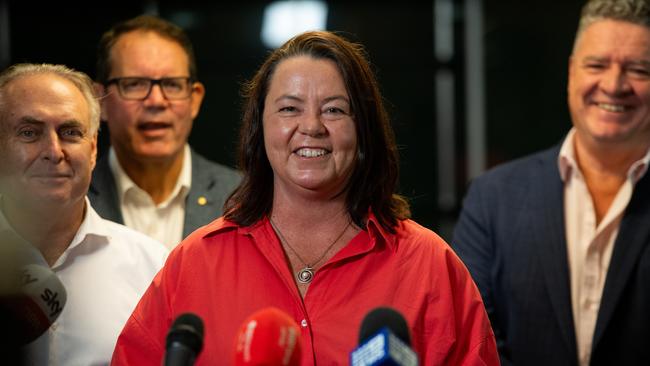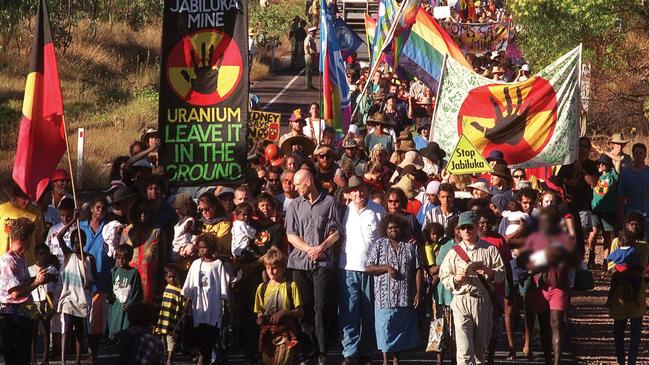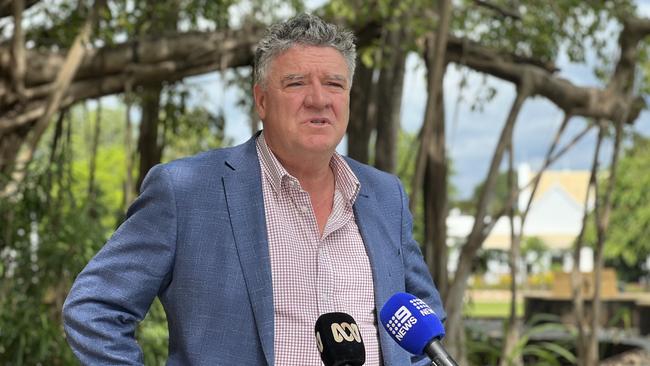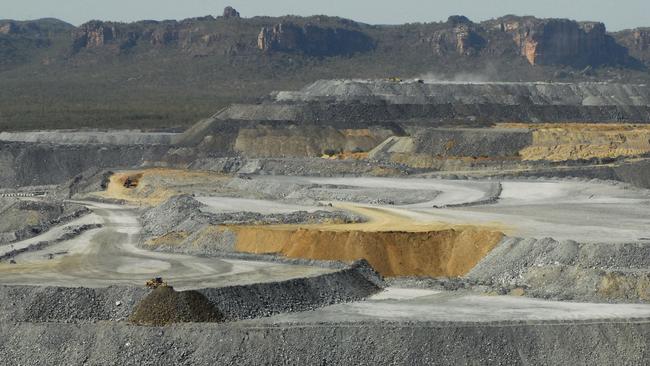Energy Resources Australia appeals rejection of 10-year licence over Jabiluka in Federal Court
As Territorians in Kakadu celebrated the end of a 40-year threat to their lands, a uranium mining company’s stock price plummeted, its deals fell apart and its leaders were left blindsided, according to court documents. Now the resources giant is seeking an appeal.

News
Don't miss out on the headlines from News. Followed categories will be added to My News.
A mining giant is battling to stop the expansion of Kakadu National Park and unlock a controversial mining licence, against the wishes of Traditional Owners.
As the Mirarr people celebrated the end of a 40-year threat to their lands in July, a uranium mining company’s stock price plummeted, its deals fell apart and its leaders were left blindsided according to court documents.
Rio Tinto subsidiary Energy Resources of Australia is attempting to overturn a July decision which rejected its application for a 10-year extension to the minerals licence over the uranium-rich land of Jabiluka, which is surrounded by the World Heritage Protected site.
In August, ERA lodged its appeal in the Federal Court, naming the Commonwealth Minister for Resources Madeleine King, the NT Mining Minister, the Jabiluka Aboriginal Land Trust and the Northern Land Council as respondents.

It claimed the Territory Government decision, with advice from the Commonwealth, to not extend the 42-year-old licence denied ERA procedural fairness and natural justice.
ERA alleged the decision gave “excessive and impermissible weight” to the push to extend Kakadu National Park, and the views of the Mirarr Traditional Owners and the Northern Land Council.
ERA also claimed it was contrary to the “national interest” in preserving Commonwealth control of the radioactive material.

A statement from ERA acting chief executive Brad Welsh claimed during meetings with Federal Government representatives in February and June he was not warned a decision around Jabiluka was imminent.
Despite the Mirarr people actively and publicly campaigning against the lease renewal, Mr Welsh said he was not advised by the Federal Minister the Traditional Owners strongly opposed the licence renewal or the Commonwealth’s plans about the national park.
He alleged that during these meetings government representatives “did not ask any questions or otherwise identify any issues of concern” with the mining team.
“(It) created the impression in the minds of the Applicant (ERA) that no advice in respect of the applicant was imminent and that if a decision was pending there would be consultation,” court documents said.

ERA claimed the Commonwealth failed to give it an opportunity to comment on information provided by the Northern Land Council and the Traditional Owners, particularly as Prime Minister Anthony Albanese publicly stated he had been meeting with Mirarr leaders in the 18 months leading up to the decision.
The battle over the mineral licence comes even as ERA maintains it will not mine Jabiluka without the Mirarr people’s prior approval due to the Long Term Care and Maintenance agreement.
Letters from the NT Mining Minister’s office revealed because Mirarr people had voiced their strong objection to the mining renewal, and ERA had committed to not mine without their consent meant “the prospects of the site being developed or mined within the 10 year renewal period sought were considered low”.

However, as a result of the non-renewal ERA documents stated it was unable to “sell its interests in Jabiluka to third parties”, with an ASX notice confirming it had a $550m non-binding offer from Boss Energy to buy its licence was withdrawn.
It is unclear how the potential Boss Energy takeover would have impacted the Long Term Care and Maintenance agreement, which ERA was using as an argument to continue control of the licence.
The ASX shows the share price for ERA dropped from 3.5 cents a share to 2 cents in the day following the lease decision, with legal documents stating the company remained on the hook for $2.4bn in Ranger Mine rehabilitation costs.
ERA has asked for an order setting aside the renewal decision, and an order declaring the mineral lease continues in force.
The matter will return to the Federal Court on October 28 for a four day hearing.
More Coverage
Originally published as Energy Resources Australia appeals rejection of 10-year licence over Jabiluka in Federal Court





